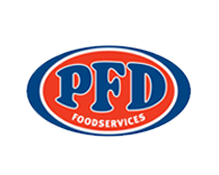Asymptotic Analysis
Asymptotic analysis: In mathematics, asymptotic analysis is a method of analyzing functions that have infinite limits. Asymptotic analysis is used to approximate functions that cannot be exactly calculated.
Asymptotic analysis is a powerful tool in mathematics and computer science. It allows us to understand the behavior of complex systems by studying them at different scales and simplifying them through approximation. Asymptotic analysis also helps predict future trends and outcomes for large data sets. In this article, we will explore the basics of asymptotic analysis and its applications in both academia and industry.
Mathematicians have long used asymptotic methods to study functions, polynomials, sequences, and much more. These methods allow mathematicians to identify patterns within complicated structures or equations that could not be seen otherwise. Additionally, it can simplify these structures or equations into simpler forms which are easier to analyze.
Within computer science, asymptotic analysis has become increasingly important in recent years due to the need for efficient algorithms to process larger amounts of data faster than ever before. By applying asymptotic techniques such as worst-case time complexity calculation, programmers can design algorithms with improved performance over traditional approaches while still maintaining accuracy and reliability. We will discuss how asymptotic analysis works in detail later on in this article.
What Is Asymptotic Analysis?
Asymptotic analysis is a branch of mathematics that deals with the behavior of functions when their arguments tend to infinity. It consists of asymptotic expansions, series, estimates and notations which are used to obtain an approximate solution or asymptotic solution for problems that cannot be solved exactly. Asymptotic theory provides methods such as Euler Maclaurin summation, which can be used to analyze complicated integrals and sums. On the other hand, non-asymptotic analysis focuses on obtaining exact solutions whenever possible.
In general, asymptotic analysis is useful in understanding how certain mathematical objects behave under different conditions and parameters. This helps in predicting outcomes without having to go through long calculations or simulations. Moreover, it allows us to identify patterns from data and make informed decisions based on those patterns. As a result, it offers valuable insights into various phenomena across multiple disciplines including physics, engineering and economics.
Types Of Asymptotic Notations
Asymptotic analysis is a mathematical technique used for understanding the behavior of algorithms as their input increases. It uses asymptotic notations to describe the growth rate or time complexity of an algorithm, which allows us to compare different algorithms and understand how they perform in realistic scenarios.
The three most common types of asymptotic notation are big O (O), little o (o) and Theta notation (Θ). Big O notation describes the worst-case scenario when the size of inputs grows infinitely large. Little o notation measures how close two functions get to each other as the size of input approaches infinity. Finally, Theta notation gives upper and lower bounds on the running time, allowing us to determine the exact order of magnitude at which it grows with larger inputs.
These notations help us better understand the asymptotic behavior of algorithms so that we can make improvements if needed, or choose one over another depending on our requirements. Asymptotic expansions and methods also allow us to analyze complex computations by breaking them down into simpler components, making mathematical analysis easier and more accurate. Understanding these concepts helps provide insight into an algorithm's expected performance in terms of its time complexity and overall efficiency.
Big O Notation
Big O Notation is a mathematical notation used in the analysis of algorithms to describe their time complexity. It allows for an estimation of the running time complexity, which can range from best and average cases to worst case scenarios. This notation is also referred to as Big Oh or Order of Magnitude because it provides an upper bound on the growth rate of a finite sum.
The main idea behind big oh notation is that it takes into account both the maximum time required by an algorithm and its constant factor, while eliminating any lower order terms. In other words, this notation helps determine how well an algorithm scales with respect to its input size. For example, if an algorithm's runtime increases linearly with increasing input size (i.e., doubling the input size results in double the number of steps taken by the algorithm), then its time complexity would be expressed as “O(n)” where n represents the total amount of input data points processed by the algorithm.
This type of notational shorthand has become widely adopted among computer scientists due to its ability to concisely express complex patterns found within various types of algorithms, thereby allowing for more efficient comparison between different solutions when analyzing their respective runtimes under varying conditions such as minimum/maximum times or worst-case scenarios. Ultimately, understanding and applying Big O Notation can help developers better understand how their code will scale up over time and enable them to make more informed decisions about what methods they should use when developing software applications.
Little O Notation
Little o notation is a mathematical notation used in asymptotic analysis to measure an algorithm's complexity. It is closely related to big O notation and is often used with regard to upper bounds, normal approximations, Taylor Series, Laplace Method or Euler Maclaurin Summation Formula. Little o notation provides a way of measuring the running time of algorithms such as binary search or Robbins-Monro Algorithm.
In comparison to Big O Notation which gives a worst case scenario performance bound on an algorithm’s run time; little o notation can provide tighter upper bounds on algorithms by providing more precise mathematical boundations for their run times. As such it provides greater accuracy when measuring the performance of an algorithm under certain conditions, allowing us to make better informed decisions regarding how best to optimize code for speed and efficiency.
Omega Notation
Omega notation is a mathematical tool used in asymptotic analysis to describe the worst case running time of an algorithm. It allows us to compare algorithms by approximating their average and worst case values, particularly when analyzing data structures or other complex functions. Omega notation expresses the rate at which the running time increases with respect to input size, using logarithmic form rather than a simple function. This makes it possible to predict how long a program will take in the most unfavorable circumstances (worst case scenario).
When considering average case scenarios, omega notation can be used alongside little o notation for more precise predictions about the running time of an algorithm. By comparing these two values together, analysts are able to gain insight into what kind of performance should be expected on average from any given algorithm. Furthermore, this information has many applications; such as providing guidance during software development or enabling users to make informed decisions regarding system design based on the analysis of algorithms.
Big Theta Notation
Big theta notation is a mathematical unit used to describe asymptotic analysis. It measures the approximate time complexity of an algorithm, and provides insight into how long it will take for a given function to complete its task. Big Theta notation consists of twofold functions: one that shows growth at larger values and another which examines behaviour near fixed constants.
The first part of big Theta is concerned with integral converging; this allows us to determine how close we can get when approximating decimal places up to a certain limit. The second part focuses on singular perturbations such as steepest descents or linear search; these help explain why algorithms behave in different ways under varying conditions. Additionally, they allow us to identify any remainder terms that may be present in our calculations.
In determining the running time of an algorithm, big theta offers several advantages over other notational methods such as omega notation. By providing insights into both large values and small ones, it has greater scope than before - allowing us to understand performance across all scenarios.
Furthermore, by isolating potential remainder terms, it helps us analyse where exactly our calculations are falling short of expectations. This makes it easier for us to adjust parameters or refine our approach so that we reach more accurate results faster.
Conclusion
Asymptotic analysis is a type of mathematical analysis used to classify algorithms based on their running time or space requirements. It is an invaluable tool for developers, as it allows them to better understand and optimize the performance of their programs.
The four primary types of asymptotic notations are:
- Big O Notation,
- Little O Notation,
- Omega Notation
- Big Theta Notation
Each measures the complexity of an algorithm by describing how its runtime or memory usage grows with respect to input size. With this information in hand, developers can tailor algorithms to best fit their needs, making systems faster and more efficient.
In conclusion, Asymptotic Analysis provides developers with valuable insights into the behavior of complex algorithms. By measuring the runtime or memory usage of these algorithms with various inputs, they can identify areas where optimization will be most effective. Furthermore, understanding different types of asymptotic notations helps developers make informed decisions when choosing which algorithm to use in any given situation. Ultimately, Asymptotic Analysis is an essential tool that every programmer should master if they wish to create fast and efficient software solutions.
PREVIOUS NARROW AI GLOSSARY TERM
NEXT NARROW AI GLOSSARY TERM
Best, worst, and average case analysis
Asymptotic Analysis Definition
Exact match keyword: Asymptotic Analysis N-Gram Classification: Asymptotic notations, Asymptotic analysis theory, Asymptotic theory Substring Matches: Analysis, Asymptotic Long-tail variations: "Asymptotic notations", "asymptotic analysis theorem", "asymptotic expansions" Category: Mathematics, Computer Science Search Intent: Information, Research, Solutions Keyword Associations: Algorithms, Big O Notation, Big Theta Notation Semantic Relevance: Algorithmic Complexity Theory, Big O Notation, Big Theta Notation Parent Category: Mathematics Subcategories: Algorithmic complexity Theory, Theoretical Computer Science, Graph Theory Synonyms: Big O notation,Big Theta notation Similar searches: Algorithm Analysis ,Relative asymptotics ,Computational complexity Geographic relevance: Global Audience demographics : Students , Researchers Brand mentions : N/A Industry-specific data : Runtime of algorithms , Worst case scenarios Commonly used modifiers : "Notations" , "Theory" , ""Expansions' Topically relevant entities : Algorithmic Complexity Theory , Big O Notation , Big Theta Notation Comparisons of algorithms , Runtime of algorithms."Larry will be our digital expert that will enable our sales team and add that technological advantage that our competitors don't have."
Kerry Smith
CEO, PFD Foods
$1.6 billion in revenue 
"Lion is one of Australasia’s largest food and beverage companies, supplying various alcohol products to wholesalers and retailers, and running multiple and frequent trade promotions throughout the year. The creation of promotional plans is a complicated task that requires considerable expertise and effort, and is an area where improved decision-making has the potential to positively impact the sales growth of various Lion products and product categories. Given Complexica’s world-class prediction and optimisation capabilities, award-winning software applications, and significant customer base in the food and alcohol industry, we have selected Complexica as our vendor of choice for trade promotion optimisation."
Mark Powell
National Sales Director, Lion
"At Liquor Barons we have an entrepreneurial mindset and are proud of being proactive rather than reactive in our approach to delivering the best possible customer service, which includes our premier liquor loyalty program and consumer-driven marketing. Given Complexica’s expertise in the Liquor industry, and significant customer base on both the retail and supplier side, we chose Complexica's Promotional Campaign Manager for digitalizing our spreadsheet-based approach for promotion planning, range management, and supplier portal access, which in turn will lift the sophistication of our key marketing processes."
Richard Verney
Marketing Manager
Liquor Barons

"Dulux is a leading marketer and manufacturer of some of Australia’s most recognised paint brands. The Dulux Retail sales team manage a diverse portfolio of products and the execution of our sales and marketing activity within both large, medium and small format home improvement retail stores. We consistently challenge ourselves to innovate and grow and to create greater value for our customers and the end consumer. Given the rise and application of Artificial Intelligence in recent times, we have partnered with Complexica to help us identify the right insight at the right time to improve our focus, decision making, execution, and value creation."
Jay Bedford
National Retail Sales Manager
Dulux

"Following a successful proof-of-concept earlier this year, we have selected Complexica as our vendor of choice for standardizing and optimising our promotional planning activities. Complexica’s Promotional Campaign Manager will provide us with a cloud-based platform for automating and optimising promotional planning for more than 2,700 stores, leading to improved decision-making, promotional effectiveness, and financial outcomes for our retail stores."
Rod Pritchard
Interim CEO, Metcash - Australian Liquor Marketers
$3.4 billion in revenue 
"After evaluating a number of software applications and vendors available on the market, we have decided to partner with Complexica for sales force optimisation and automation. We have found Complexica’s applications to be best suited for our extensive SKU range and large set of customers, being capable of generating recommendations and insights without burdening our sales staff with endless data analysis and interpretation.
Aemel Nordin
Managing Director, Polyaire
"DuluxGroup is pleased to expand its relationship with Complexica, a valued strategic partner and supplier to our business. Complexica’s software will enable DuluxGroup to reduce the amount of time required to generate usable insights, increase our campaign automation capability, personalise our communications based on core metrics, and close the loop on sales results to optimise ongoing digital marketing activity."
James Jones
Group Head of CRM, DuluxGroup
"Instead of hiring hundreds of data scientists to churn through endless sets of data to provide PFD with customer-specific insights and personalised recommendations, Larry, the Digital Analyst® will serve up the answers we need, when we need them, on a fully automated basis without the time and manual processes typically associated with complex analytical tasks.”
Richard Cohen
CIO, PFD Foods
$1.6 billion in revenue 
"As a global innovator in the wine industry, Pernod Ricard Winemakers is always seeking ways to gain efficiencies and best practices across our operational sites. Given the rise of Artificial Intelligence and big data analytics in recent times, we have engaged Complexica to explore how we can achieve a best-in-class wine supply chain using their cloud-based software applications. The engagement is focused on Australia & New Zealand, with a view to expand globally."
Brett McKinnon
Global Operations Director, Pernod Ricard Winemakers
"70% - 80% of what we do is about promotional activity, promotional pricing -- essentially what we take to the marketplace. This is one of the most comprehensive, most complex, one of the most difficult aspect of our business to get right. With Complexica, we will be best in class - there will not be anybody in the market that can perform this task more effectively or more efficiently than we can."
Doug Misener
CEO, Liquor Marketing Group
1,400+ retail stores 
"The key thing that makes such a difference in working with Complexica is their focus on delivering the business benefits and outcomes of the project."
Doug Misener
CEO, Liquor Marketing Group
1,400+ retail stores 
"Australia needs smart technology and people, and it has been a great experience for me to observe Complexica co-founders Zbigniew and Matt Michalewicz assemble great teams of people using their mathematical, logic, programming, and business skills to create world-beating products. They are leaders in taking our bright graduates and forging them into the businesses of the future."
Lewis Owens
Chairman of the Board, SA Water 
"Having known the team behind Complexica for some years ago now, I am struck by their ability to make the complex simple - to use data and all its possibilities for useful purpose. They bring real intelligence to AI and have an commercial approach to its application."
Andrew McEvoy
Managing Director, Fairfax Media - Digital 
"I have worked with the team at Complexica for a number of years and have found them professional, innovative and have appreciated their partnership approach to delivering solutions to complex problems."
Kelvin McGrath
CIO, Asciano 
“Working with Complexica to deliver Project Automate has been a true partnership from the initial stages of analysis of LMG’s existing processes and data handling, through scoping and development phase and onto delivery and process change adoption. The Complexica team have delivered considerable value at each stage and will continue to be a valued partner to LMG."
Gavin Saunders
CFO, Liquor Marketing Group 
“Complexica’s Order Management System and Larry, the Digital Analyst will provide more than 300 Bunzl account managers with real-time analytics and insights, to empower decision making and enhanced support. This will create more time for our teams to enable them to see more customers each day and provide the Bunzl personalised experience.”
Kim Hetherington
CEO, Bunzl Australasia 
"The team behind Complexica develops software products that are at the cutting edge of science and technology, always focused on the opportunities to deliver a decisive competitive edge to business. It has always been a great experience collaborating with Matthew, Zbigniew and Co."
Mike Lomman
GM Demand Chain, Roy Hill Iron Ore 
"The innovations that the Complexica team are capable of continue to amaze me. They look at problems from the client side and use a unique approach to collaborating with and deeply understanding their customers challenges. This uniquely differentiates what they bring to market and how they deliver value to customers."
John Ansley
CIO, Toll Group 
"Rather than building out an internal analytics team to investigate and analyse countless data sets, we have partnered with Complexica to provide our sales reps with the answers they need, when they need them, on a fully automated basis. We are excited about the benefits that Larry, the Digital Analyst will deliver to our business.”
Peter Caughey
CEO, Coventry Group 
“Complexica’s Order Management System and Larry, the Digital Analyst will provide more than 300 Bunzl account managers with real-time analytics and insights, to empower decision making and enhanced support. This will create more time for our teams to enable them to see more customers each day and provide the Bunzl personalised experience.”
Kim Hetherington
CEO, Bunzl Australasia 
"After an evaluation process and successful proof-of-concept in 2016, we have chosen to partner with Complexica to upgrade the technological capability of our in-field sales force. The next-generation Customer Opportunity Profiler provided by Complexica will serve as a key tool for sales staff to optimise their daily activities, personalise conversations and interactions with customers, and analyse data to generate actionable insights."
Stephen Mooney
Group Sales Capability Manager, DuluxGroup
$1.7 billion in revenue
"After evaluating a number of software systems available in the marketplace, we have ultimately selected Complexica as our vendor of choice for sales force automation and CRM. Given the large SKU range we carry and very long tail of customers we serve, Complexica’s applications are best suited to deal with this inherent complexity without burdening our staff with endless data entry."
Nick Carr
CEO, Haircaire Australia
Australia's largest distributor of haircare products
“Asahi Beverages is Australia’s largest brewer, supplying a leading portfolio to wholesalers and retailers, including some of Australia’s most iconic brands. Last year Asahi Beverages acquired Carlton & United Breweries, which is its Australian alcohol business division. To harness the strength of our expanded portfolio, we partner with our customers to run multiple and frequent trade promotions throughout the year, delivering long-term growth for both our business and theirs. Given the inherent complexity in optimising promotional plans and our continued focus on revenue and growth management, we have selected Complexica as our vendor of choice after a successful Proof-of-Concept of its world-class optimisation capabilities.”
Kellie Barnes
Group Chief Information Officer
Asahi Beverages
"Dulux is a leading marketer and manufacturer of some of Australia’s most recognised paint brands. The Dulux Retail sales team manage a diverse portfolio of products and the execution of our sales and marketing activity within both large, medium and small format home improvement retail stores. We consistently challenge ourselves to innovate and grow and to create greater value for our customers and the end consumer. Given the rise and application of Artificial Intelligence in recent times, we have partnered with Complexica to help us identify the right insight at the right time to improve our focus, decision making, execution, and value creation."
Jay Bedford
National Retail Sales Manager, DuluxGroup
"At Liquor Barons we have an entrepreneurial mindset and are proud of being proactive rather than reactive in our approach to delivering the best possible customer service, which includes our premier liquor loyalty program and consumer-driven marketing. Given Complexica’s expertise in the Liquor industry, and significant customer base on both the retail and supplier side, we chose Complexica's Promotional Campaign Manager for digitalizing our spreadsheet-based approach for promotion planning, range management, and supplier portal access, which in turn will lift the sophistication of our key marketing processes."
Richard Verney
Marketing Manager, Liquor Barons



































